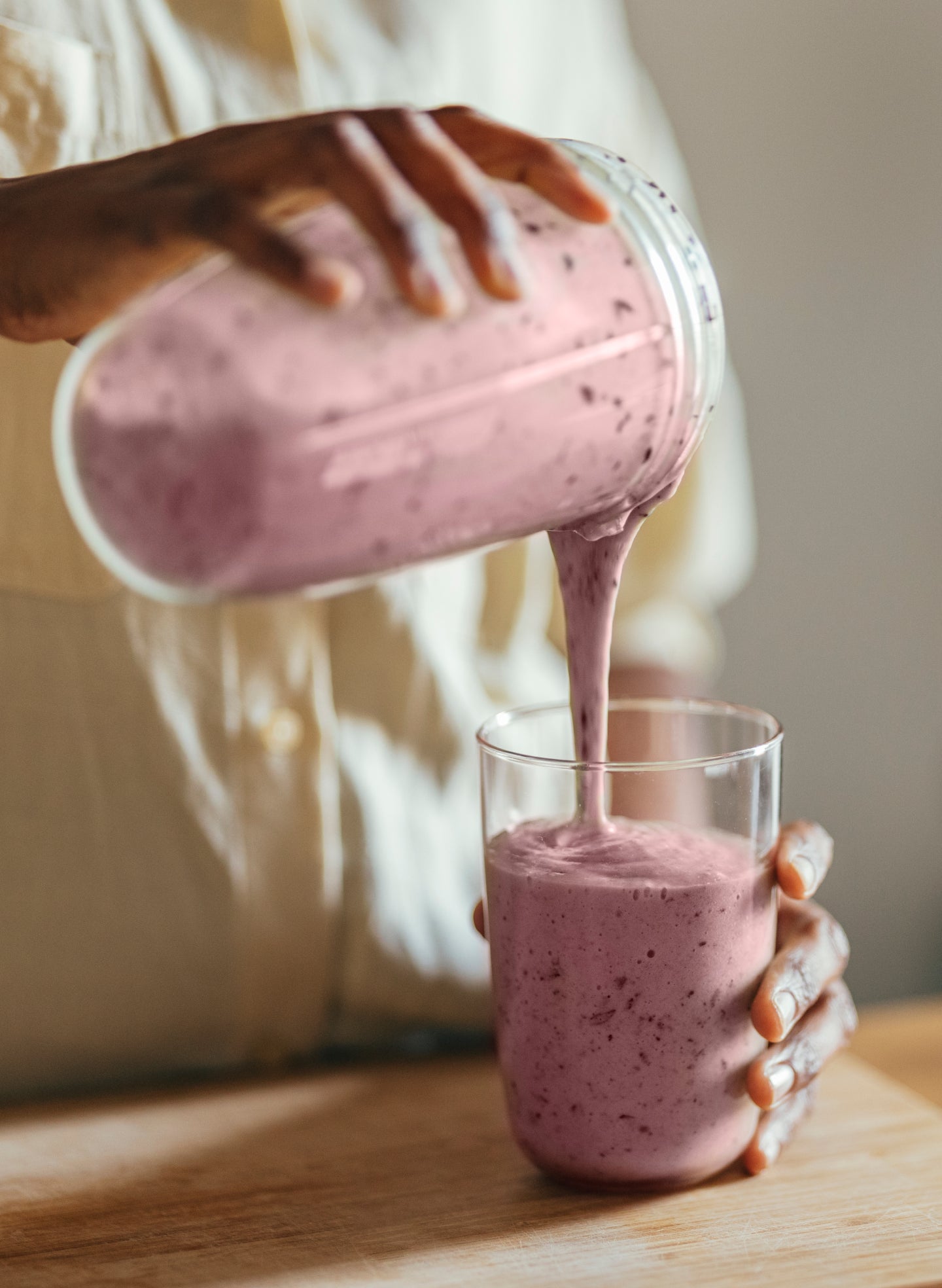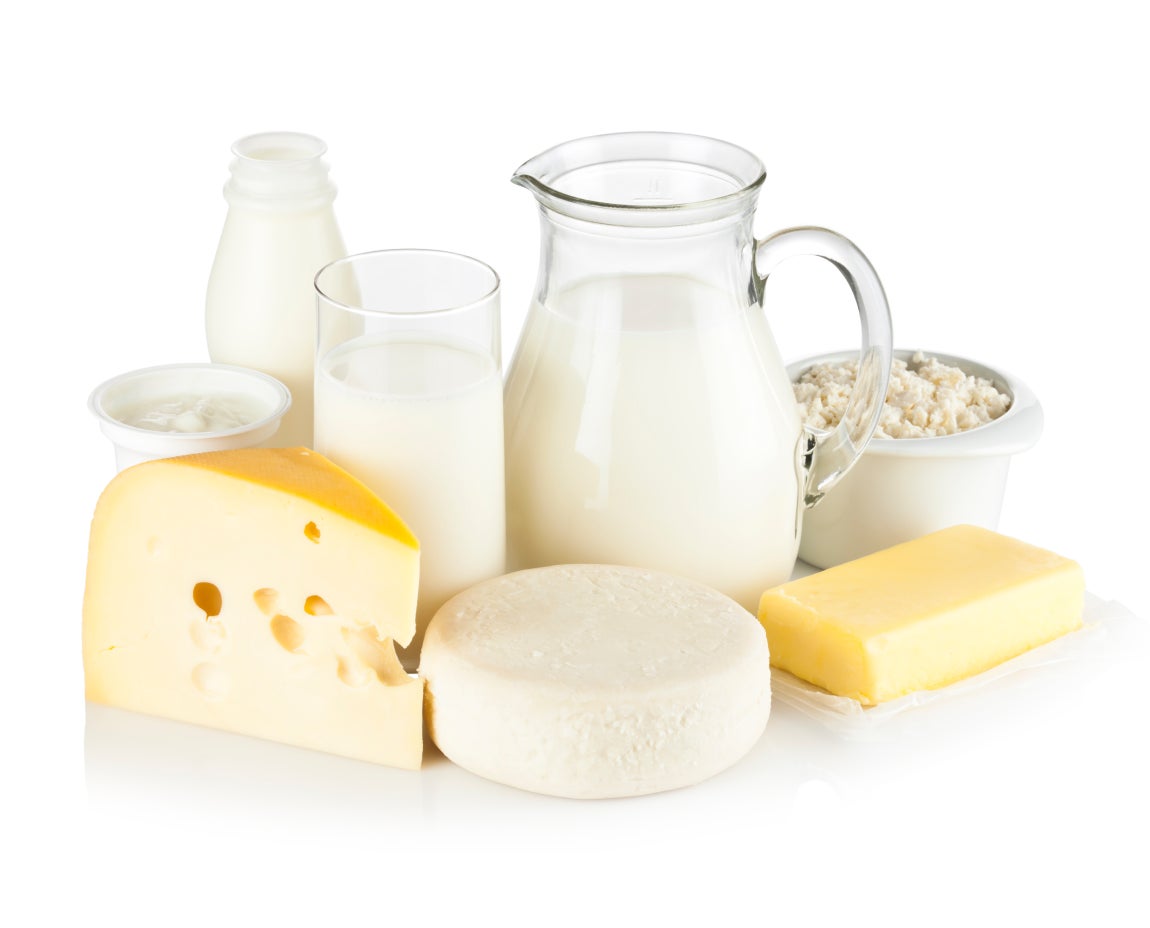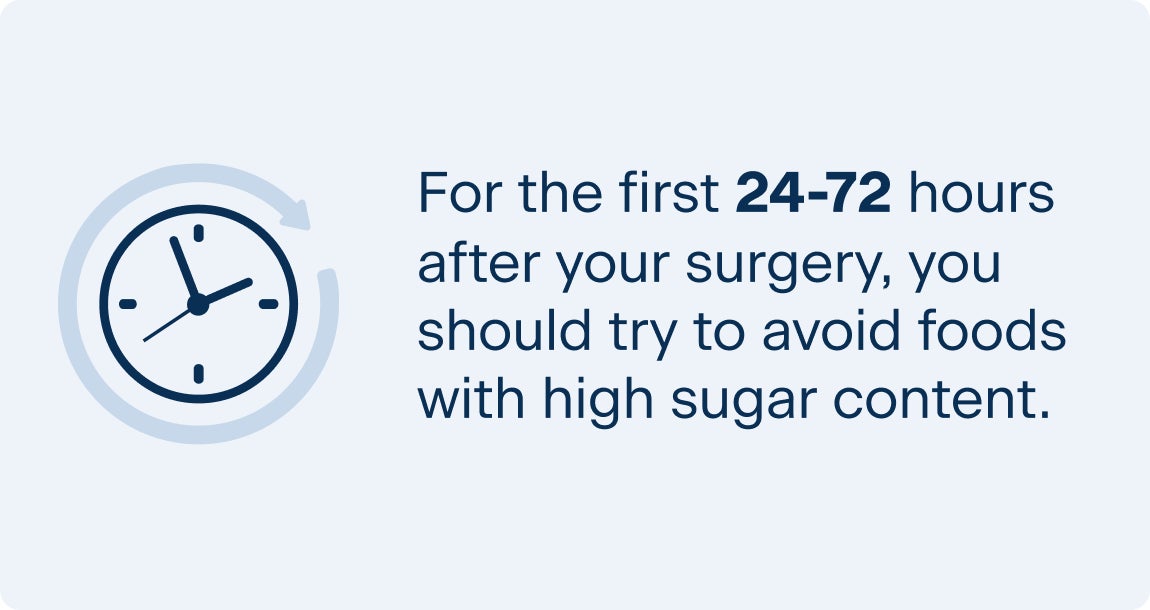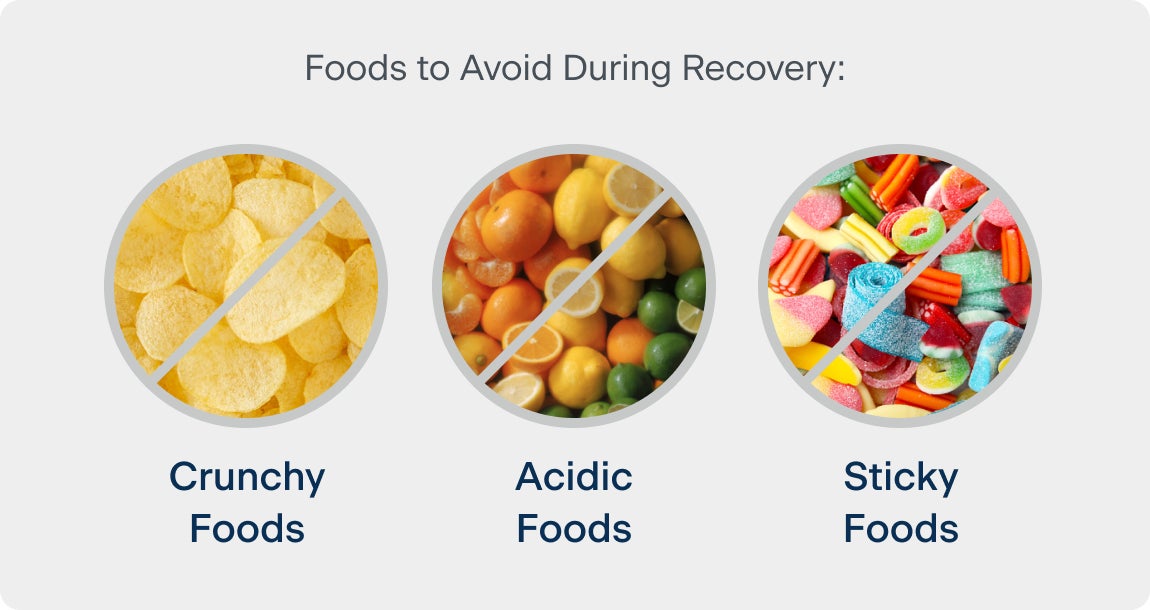Dairy and Dental Implants: Why Your Recovery Diet Matters
Avoiding dairy after dental implants aids healing by reducing mucus, minimizing inflammation, and supporting recovery.

What you eat after dental implant surgery matters. Nutrition fuels your healing process, so your post-surgery diet is crucial to your recovery.
While you're healing after dental implants, you likely have lots of questions about what to expect during recovery. The internet is full of conflicting information, so you may ask; "why no dairy after dental implants?" "What foods should I avoid after dental implant surgery?" At ClearChoice Dental Implant Centers®, we're here to clear it all up.
In this blog, we'll uncover myths about eating dairy products post-implant surgery. We'll also identify foods you should actually avoid after dental implant surgery, and tips and tricks to accelerate your recovery.

Understanding the Role of Dairy in Post-Surgery Recovery
Let's debunk some of the myths out there about dairy after dental implant surgery.
Many myths about dairy consumption stem from an international belief. Patients in German speaking countries are traditionally advised to avoid milk and dairy products after dentoalveolar surgery. However, a harmful effect from drinking dairy after dental implant treatment could not be supported by evidence.
Let's counter some other claims about dairy and dental implants:
One of the claims online is that eating dairy products post-implant surgery can trigger tissue inflammation and delay your healing. This is not the case. In fact, the vitamins and minerals in dairy products can often help promote healing and oral health.
Another theory poses that because of dairy's high-calcium content, it can block blood clot formation. These claims allege that dairy can lead to prolonged bleeding, hinder osseointegration, and an overall slower healing process. The calcium and phosphorous within the average dairy consumption cannot cause these effects. And while it’s true that dairy products like milk counteracts with a few antibiotics, these are not routinely used for oral surgery.
One caution with dairy comes from the potential risk of infection; but it's because of the sugar content, not the dairy itself. During your initial recovery, your surgical site is vulnerable to bacterial infiltration while the wound heals. Without proper hygiene, sugary dairy products like milkshakes may foster bacterial growth, leading to infection.
This is one of the reasons the dairy myth persists. Because many dairy products are high in sugar, it creates a coincidence. Dairy after dental implants is not inherently detrimental, but high sugar consumption combined with poor hygiene can be.

For the first 24-72 hours after your surgery, you should try to avoid foods with high sugar content. They can encourage bacterial growth and increase the risk of infection. Clean your teeth properly to help stop bacteria from gaining a foothold in your healing implant site.
Another small caution is the increased swelling and sensitivity post-surgery. To many patients, cold dairy products like ice cream can be soothing post-surgery. But to other patients, cold temperatures can cause mild pain and discomfort. Consuming cold, sugary dairy products like yogurt and ice cream might worsen these symptoms for some patients. Monitor your reactions to foods, and talk to your doctor about any concerns.
Comprehensive List of Foods to Avoid During Recovery
Forget dairy; here are the real culprits that can hinder your healing process. You should avoid the following foods after your dental implant surgery:
Crunchy foods
Acidic foods
Sticky foods

These types of food can not only cause discomfort to chew on, but also damage your dental implant. As your implant settles into your jawbone, it's vital to avoid putting excess pressure on the surgical site. Hard, sticky and crunchy foods can cause your implants to move or fail, and even become lodged in the surgical site.
As any disruption carries the risk of implant failure, we advise you to stick to a soft foods diet.
Soft Foods and Balanced Nutrition for Optimal Healing
Combined with proper oral care after implant surgery, your diet is a key factor to a successful tooth restoration. That's why it's important to build a diet of soft foods that will keep you nourished and comfortable. Safe foods for dental implant recovery include mashed potatoes, scrambled eggs, oatmeal, smoothies, and soups. A balanced implant recovery diet is beneficial, as it supports the body's natural healing process.
A soft foods diet for implant recovery will keep you on track to heal correctly.
Best Practices for Post-Implant Care
While the healing process will always take time, there are ways to speed up implant recovery. You can accelerate your healing by following these post-operative care tips:
Rest. Take it easy for the first few days of convalescence.
Refrain from vigorous physical activity, and stay hydrated.
Apply ice packs periodically to reduce swelling and discomfort.
Take prescribed pain medication to manage discomfort.
Avoid alcohol and smoking, which can delay healing.
Follow oral hygiene instructions, like gentle brushing techniques with a soft toothbrush.
Rinse your mouth with saltwater solution to keep your surgical site clean.
Eat a tender diet of soft foods, which will minimize discomfort.
Avoid hard and chewy foods, which risk damaging your implant.
Regularly check in with your dentist about your oral health.
These post-implant recovery tips will carry you to your goal. Avoiding dairy doesn’t need to be one of them.
Frequently Asked Questions
Does dairy cause dry sockets?
There is no direct evidence linking dairy to dry sockets. Cold dairy products can sometimes cause discomfort or irritation in the mouth post-surgery.
How long after dental implants can I eat dairy?
We generally don’t recommend against dairy in your diet, provided you practice with excellent oral hygiene. Consult your dentist for specific advice based on your recovery progress.
Is ice cream okay after dental implants?
It is okay to eat ice cream, but we advise being mindful of the sugar content until your initial healing period is complete. Be mindful that some patients will have increased sensitivity to cold during their initial recovery. Definitely avoid flavors with crunchy or chewy additives like nuts or candies.
Can I eat oatmeal after a dental implant?
Yes, you can safely consume oatmeal after dental implant surgery. Oatmeal is a soft and nutritious option during your recuperation period. Ensure it is not too hot to prevent irritation of the surgical site.
Can I eat scrambled eggs after dental implant surgery?
Scrambled eggs are a suitable food option during the recovery phase. They provide an excellent source of protein, and are easy to chew.
What foods should you avoid after dental implant surgery?
Be sure to avoid hard, crunchy, spicy, acidic, and sticky foods after your dental implant procedure. Consume sugary dairy products with caution until your initial healing phase is complete.
How can I speed up the recovery of my dental implants?
You can accelerate your recovery by following your dentist’s aftercare instructions. Maintain a soft foods diet, stay hydrated, avoid strenuous activities, and practice proper oral hygiene. This should ensure a smooth and fast recovery.
Does food get stuck under dental implants?
Food particles can become trapped around dental implants, especially during the initial healing period. Use a saltwater rinse to keep the area clean and free from debris.
